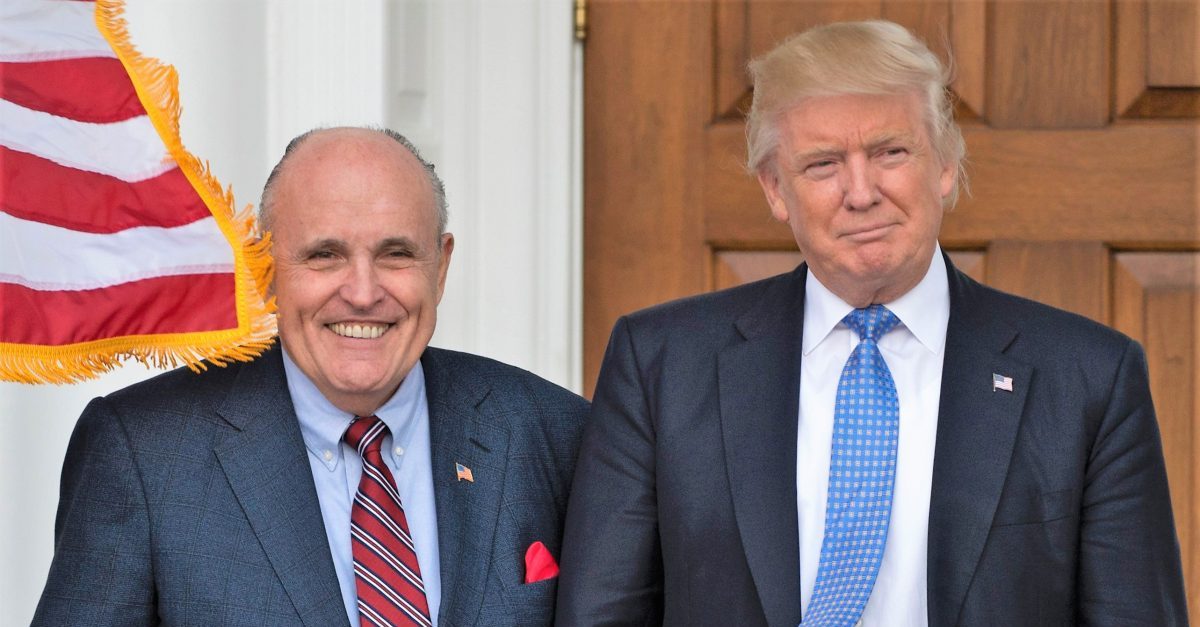
As President Donald Trump’s attorneys continue to rack up losses in courtrooms across the country, the president’s re-election campaign has re-focused its efforts on convincing Republican legislators in critical swing states to intervene on Trump’s behalf and veto the election results by hijacking appointments of state electors, Reuters reported on Thursday.
The 538 state electors are most commonly chosen during each party’s respective political convention, resulting in a slate of voters for each candidate. Then, the slate of electors representing the candidate who gets the most votes in each state will convene on Dec. 14 to formally select the president.
But according to the report, three people in the president’s camp said Trump’s legal team is hoping that Republican-led legislatures in states like Michigan and Pennsylvania—where Joe Biden unquestionably received more votes—will nonetheless attempt to send a slate of electors to vote for Trump, something that’s never been done in U.S. history.
“A senior Trump campaign official told Reuters its plan is to cast enough doubt on vote-counting in big, Democratic cities that Republican lawmakers will have little choice but to intercede,” the report stated. “The campaign is betting that many of those lawmakers, who come from districts Trump won, will face a backlash from voters if they refuse to act. The campaign believes the longer they can drag this out, the more they will have an opportunity to persuade lawmakers to intervene, the official said.”
While it may sound like a plausible plan to overthrow the will of the people, election law experts are confident that the campaign’s efforts are essentially futile.
University of Kentucky law professor Joshua A. Douglas, who specializes in election law and voting rights, said the scheme was “exceedingly unlikely to work.”
“Even if Trump is able to convince state legislators to appoint a second slate of electors, such that Congress receives two slates of electors from a single state, the federal Electoral Count Act says that Congress should count the one signed by the state’s Governor–and they are Democrats in the key states. I also don’t think enough members of Congress would agree with this scheme to wholly thwart the will of the people and undermine democracy,” Douglas said in an email to Law&Crime.
“But let’s be clear: even hypothesizing about these ideas undermines democratic norms, on which our democracy relies. It’s profoundly anti-democracy,” he added.
Harvard Law professor Lawrence Lessig wrote an op-ed on the theory in USA Today concluding that “the framers rejected the idea, and so did the Supreme Court.”
According to Lessig, while the U.S. Constitution authorizes state legislatures to select “the manner” for choosing electors, it also “gives Congress the power to decide the day (the Constitution actually says ‘time’) on which electors are to be appointed.”
“That day this year was Nov. 3. And if any state selected its slate of electors on a day other than Nov. 3, it would violate federal law, and that slate could therefore not be counted,” he wrote.”
Lessig also pointed to last year’s “faithless electors” case, which he argued before the U.S. Supreme Court. In that case, state electors argued that under the Constitution’s original meaning, they could vote for whomever they wanted.
“The Supreme Court rejected their argument. It may well be, the court observed, that electors were understood to have discretion at the founding. But whatever their understanding, democracy had overtaken it. After centuries of practice, the clear understanding of everyone was that electors had to vote as the people in their state had voted,” he wrote. “As Justice Elena Kagan put it, ‘Here, we the people rule.’”
Law&Crime recently reported that calls to defy the will of the voters, which have been amplified by conservative radio hosts and the president’s eldest son Donald Trump Jr., ignored the aforementioned Supreme Court precedent.
[Image via DON EMMERT/AFP/Getty Images]
Have a tip we should know? [email protected]